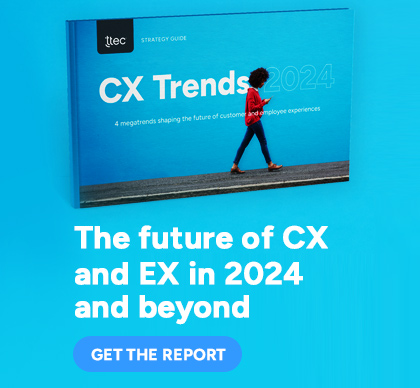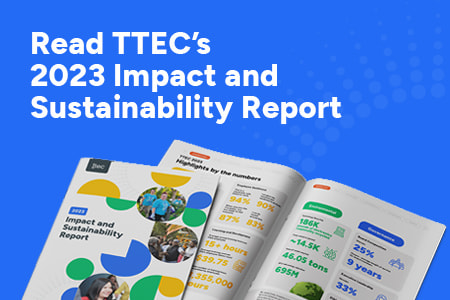Trust Never Goes Out of Style, Says New Research

Trust is the foundation for any healthy relationship. So why is it so challenging for businesses to establish this fundamental virtue with customers? According to Accenture’s newest global study, “Put Your Trust in Hyper-Relevance,” only 22 percent of customers worldwide said they shop with companies that have a deep understanding of their needs, preferences, and past interactions. But on the other hand, 40 percent of shoppers feel creeped out when technology anticipates their needs too well, and 43 percent are worried that businesses may in fact know too much about them and their families.
“U.S. consumers are facing a conundrum when it comes to customer experience,” said Robert Wollan, senior managing director of Accenture Strategy. “They’re demanding tailored, more relevant brand experiences…and they get frustrated when companies don’t deliver the experiences they crave. Yet, with the rise of identity theft and high-visibility consumer hacking, they’re concerned about giving away too much personal information—the exact info brands need to deliver these experiences in the first place.”
This is where trust comes in. People want to know how their personal data is being applied, if it is safe, and what they will get in return for sharing information. If they don’t trust a brand to handle their information, they won’t share it, and may instead move to companies they do trust.
The report found that lack of trust cost companies around $765 billion last year, due in part to 41 percent of customers who said they switched companies due to lack of trust. That is where this idea of “value exchange” comes in. Wollan said he believes that customers are willing to share personal data with companies, but only if the brand gives them something of perceived value in return. The study found that 58 percent of consumers would switch half or more of their spending to a provider that excels at personalizing experiences without compromising trust.
Across the globe the study found that 87 percent of consumers believe it is critical that companies safeguard private information. Yet 73 percent said not being able to trust a company with the personal information is a top source of frustration. There is a need for companies to be accountable with the information they gather.
“The concept of a ‘value exchange’ is still new to many companies, particularly those who have always just expected customers to hand over their personal data without anything in return,” Wollan said. “Those days are over. Even companies who incentivize customers to share data (i.e. through surveys etc.) have not necessarily emphasized why they need it and what they plan to do with it. Customer expectations have risen, and if companies don’t deliver value-added services or experiences, they will get left behind.”
Tech and trust, a perfect union
To prevent this, Wollan recommended three ways companies can pivot hyper-relevance and establish trust:
- Look to the future: It’s not about the traditional customer journey anymore. To distinguish yourself prioritize in areas where real time data can add value in unexpected places. For example, what offers can you give a customer who misses their flight? Or how can you reward special moments like promotions? It’s about taking specific data and making unique personalized moments.
- Out with the old: Companies that practice hyper-relevancy don’t need to rely on descriptive analytics anymore. Instead focusing on predictive analytics creates a clearer picture of the customer journey and specific points you can zoom in on to help them. Along with this, make it clear that their data is in safe hands. Ensuring that they are in control of their personal information and eliminate duplicate requests to get their information.
- It’s always about trust: Brands that understand data need to also understand that trust is one of the greatest growth enablers. Make sure that you fulfil the experiences that you promised customers in return for their personal data. Create a cross-functional governance structure to measure out the effectiveness of your hyper-relevant findings.
The initiative is out there, the report found that 73 percent of CEOs understand that their brand needs to be meaningful to consumers. Now it’ll be a matter of putting good intentions into actual practice.
“Organizations that are extraordinarily pre-emptive and responsive to changing customer needs – there is huge growth potential ahead of them,” Wollan said. “But it cannot be realized unless they earn digital trust. We expect to see companies begin to drift to one edge of the spectrum or the other from this – those that lose customers at an alarming rate, and those that become the beacon for customers and benefit most from the Switching Economy [customers switching brands due to dissatisfaction]. There’s $756 billion at stake in the U.S. alone, so it is worth the focus.”





